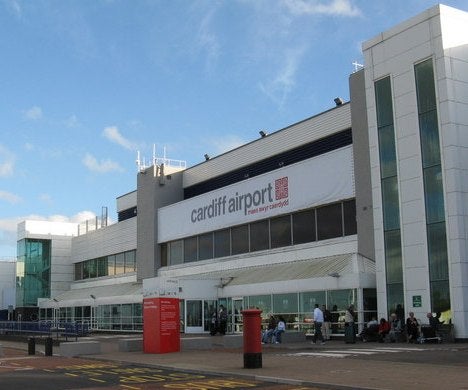
Cardiff Airport has unveiled its Environmental Flight Path framework detailing short and long-term environmental goals that will help it become a carbon neutral airport over the next two decades.
Some of the goals outlined by the airport for 2019 include ensuring its entire power supply is sourced from renewable and clean energy by October. The Welsh hub will also be introducing electric car charging points across its car parks, and renewing its recycling operations by November this year.
Looking forward, the airport further unveiled its goals for 2020, which entail installing smart meters across the site to closely monitor energy consumption and further reduce plastic usage. In addition, the hub aims to install solar photovoltaic power stations on the airport site by the end of next year.
Developed with the support of Cardiff Airport’s Board, the Welsh Government, the Airport Operators’ Association and WSP consultancy, the Environmental Flight Path was created with the aim to plan future goals, as well as track sustainability successes.
Commenting on the plans, Cardiff Airport CEO Deb Bowen Rees said the hub has made environmental initiatives a priority and has already achieved an over 50% reduction in carbon emissions over eight years.
She added: “Our Environmental Flight Path will continue as a living and breathing strategy which will be used as a benchmark for success but, importantly, it will be reviewed and expanded over time to include mid and long-term goals as we move through the next twenty years and realise our Masterplan for 2040 and ultimately become a carbon neutral Airport.”
Highlighting some of its past accomplishments, the report mentions that Cardiff Airport achieved a 29% reduction in natural gas consumption in over a year, introduced electric vehicles to navigate around the airport, eliminated plastic straws from the food and drinks outlets and, replaced its operational equipment with LED and energy efficient solutions.
Meanwhile, some of the airport’s ongoing environmental initiatives include ensuring twin engine aircrafts taxi with one engine, promoting noise abatement by using continuous descent operations for aircraft on approach, as well as restricting ground running of engines during anti-social hours.
Finally, the airport went as far as claiming that flying locally from Cardiff will have a positive impact on the carbon footprint of travellers who may otherwise have to use their cars.
As a result of these initiatives, the Cardiff Airport achieved the Seren Standard accreditation for the fourth year in a row. The certification recognises the airport’s commitment towards legal compliance and sustainability.
Cardiff Airport is hardly alone in the aviation industry to take steps towards promoting awareness of climate change.
Stockholm Arlanda Airport earned the reputation of the first European airport to achieve carbon neutrality in 2009, after implementing an environmental permit which features a cap on its carbon dioxide emissions.
Boston Logan has also undertaken initiatives designed to reduce emissions, such as replacing terminal lighting with LED bulbs and replacing its aging fleet of diesel buses with new diesel-electric hybrid and compressed natural gas buses which has reduced their airport ground air pollutant emissions by 33%.
In September 2019, Air France-KLM topped the ‘Airlines’ category of the Dow Jones Sustainability Index after it invested heavily in sustainable fuel and launched the ‘Fly Responsibly’ initiative. As part of its aim to cut emissions, it will replace one of its daily flights between Amsterdam and Brussels with the high-speed Thalys train from March 2020.



